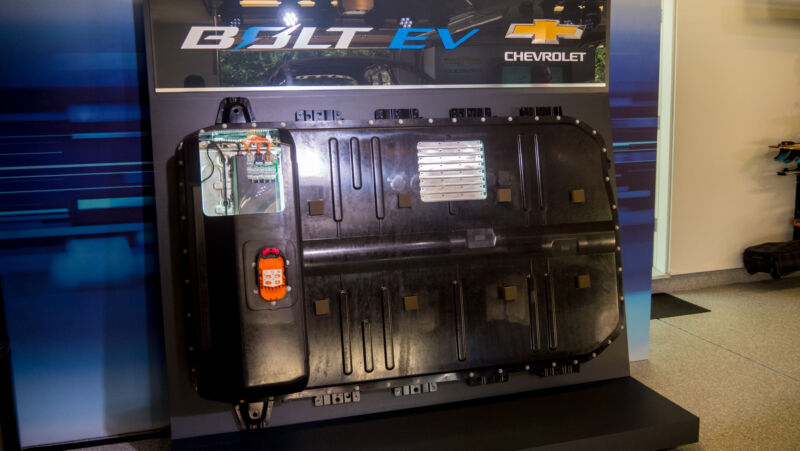
The National Highway Traffic Safety Administration has opened an investigation of the Chevrolet Bolt EV following several reports of vehicle fires. Specifically, NHTSA says it was contacted by two owners reporting that their Bolt EVs had caught fire while parked and unattended. The agency did some digging and turned up a third instance, and on October 9 it opened a preliminary investigation into the scope, frequency, circumstances, and safety consequences of the fires.
In each case, NHTSA says the burn pattern was similar: fire damage was concentrated in the lithium-ion battery compartment (which sits underneath the passenger compartment), with some penetration into the passenger area through the rear seat. The three affected cars span model years 2017-2019.
In one case—a MY 2018 Bolt EV in Belmont, Massachusetts—the vehicle was plugged into a charger in the owner’s driveway when it caught fire. In this case, the residents and their neighbors had to be evacuated by the fire department due to noxious fumes and smoke.
The second case concerns a MY 2019 Bolt EV in Vienna, Virginia. In this instance, the electric vehicle had been parked for approximately 20 minutes before it caught fire, causing a “20 foot high heavy white/grey smoke cloud” to billow from the car.
The third fire affected a MY 2017 Bolt EV, but NHTSA has not published details of that incident beyond the fact that it occurred at an insurance auction yard.
There is no doubt that a burning EV is a scary thing—in the case of the Virginia Bolt EV, the fire brigade was called to put out the fire three times in four hours. But on balance, EVs catch fire far less often than gasoline-powered vehicles—and that just two gallons (7.6L) of gasoline contain more kWh of energy than the 60kWh battery pack found in MY2017-2019 Bolt EVs.
https://arstechnica.com/?p=1714477

